Question And Answer
Publications
Articles, publications, books, tools and multimedia features from the U.S. Institute of Peace provide the latest news, analysis, research findings, practitioner guides and reports, all related to the conflict zones and issues that are at the center of the Institute’s work to prevent and reduce violent conflict.
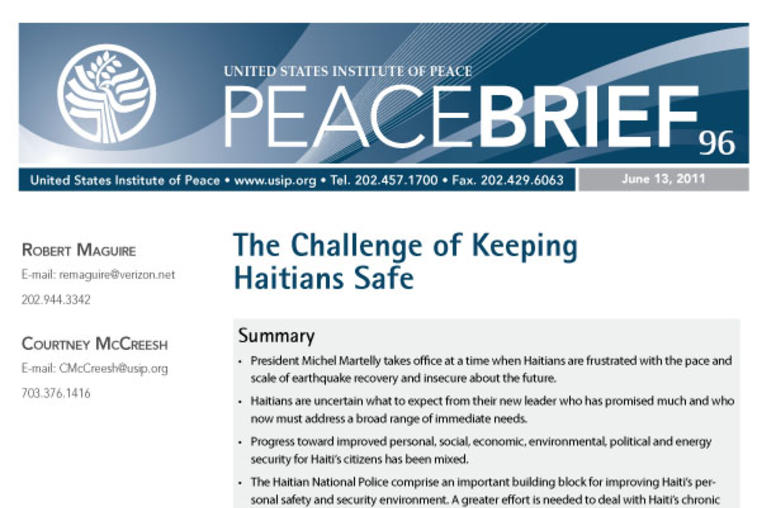
The Challenge of Keeping Haitians Safe
Robert Maguire, Chairman of USIP's Haiti Working Group, analyzes the various aspects of security – political, economic, personal and criminal – in Haiti.
Counting the Dead and Wounded: Improving Capacity to Measure the Casualties of Armed Conflict
Tallying the fatalities and injuries resulting from armed conflict is an enormous challenge, with major political implications. Comprehensive, accurate information may be hard to collect, and conflict protagonists are prone to distort casualty figures. Meanwhile, the means of gathering data and evaluating competing claims have emerged in an ad hoc fashion. As a result, casualty statistics can be highly controversial and subject to misuse, exacerbating the risks of both further hostilities an...
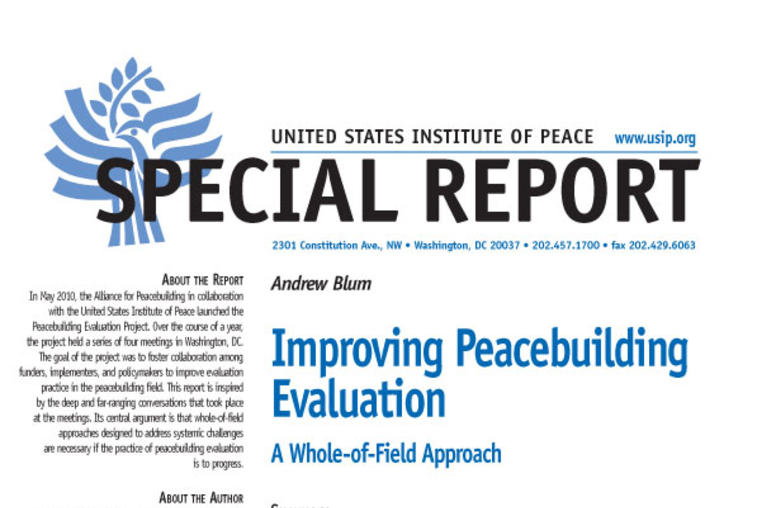
Improving Peacebuilding Evaluation
In May 2010, the Alliance for Peacebuilding in collaboration with the United States Institute of Peace launched the Peacebuilding Evaluation Project. The goal of the project was to foster collaboration among funders, implementers, and policymakers to improve evaluation practice in the peacebuilding field. This report is inspired by the deep and far-ranging conversations that took place at the meetings.
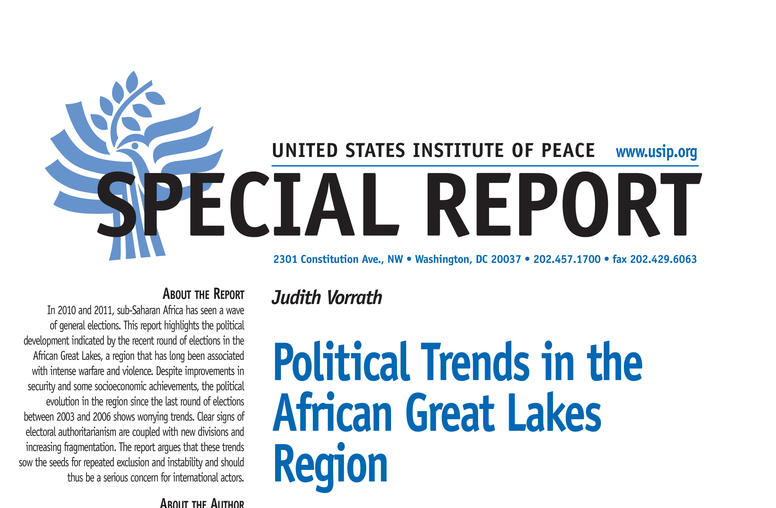
Political Trends in the African Great Lakes Region
Despite recent elections in Burundi, Rwanda, and Uganda and upcoming • elections in the Democratic Republic of Congo (DRC), the Great Lakes region shows worrying trends toward electoral authoritarianism and political fragmentation, with new divisions that intensify the potential for confrontation.
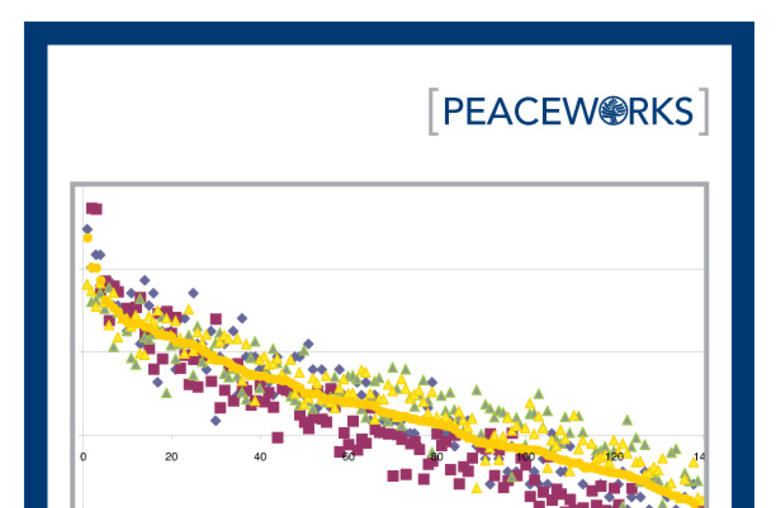
Vulnerability to Intrastate Conflict
This report, which draws on the International Futures modeling system for its analysis, focuses on vulnerability to conflict. This meta-analysis approach seeks to help those in scholarly and policy environments understand more fully the various quantitative measures on conflict vulnerabilities.
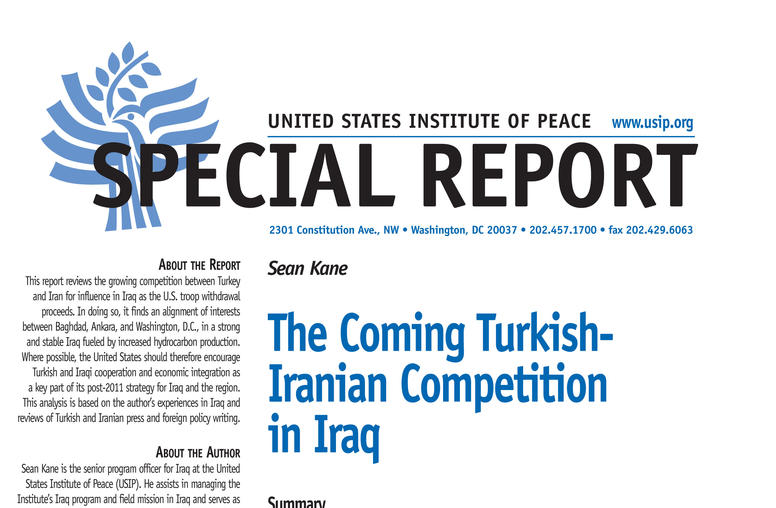
The Coming Turkish-Iranian Competition In Iraq
This report reviews the growing competition between Turkey and Iran for influence in Iraq as the U.S. troop withdrawal proceeds. In doing so, it finds an alignment of interests between Baghdad, Ankara, and Washington, D.C., in a strong and stable Iraq fueled by increased hydrocarbon production. Where possible, the United States should therefore encourage Turkish and Iraqi cooperation and economic integration as a key part of its post-2011 strategy for Iraq and the region. This analysis is bas...
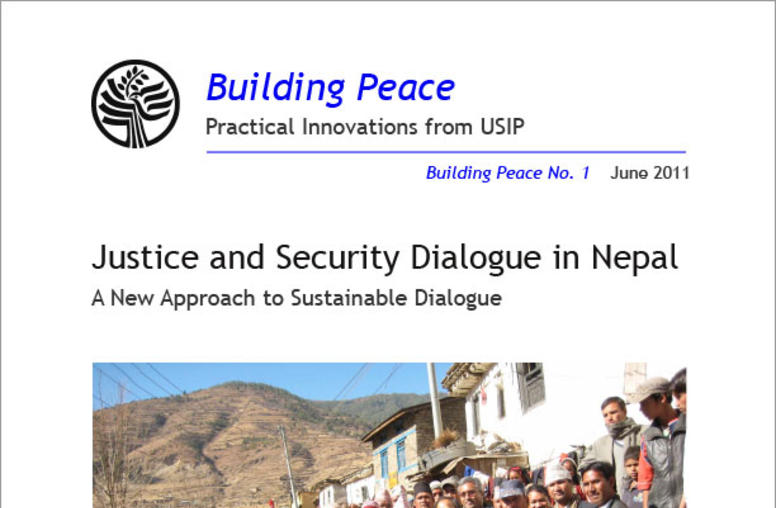
Justice and Security Dialogue in Nepal
Countries emerging from conflict will never achieve either security or justice unless civil society and security agencies learn to work together. This report describes a new approach to promoting dialogue and cooperation that has enabled the Nepal Police and local communities to bridge the gulf of mistrust and together start tackling crime and instability. This approach is now being customized to work in other war-torn societies.
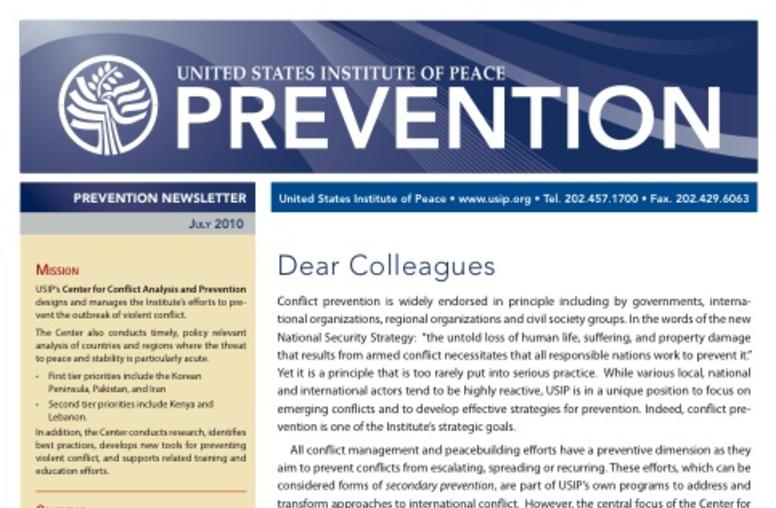
USIP Prevention Newsletter - July 2011
Read about USIP’s on-the-ground and region-specific work aimed at helping prevent conflict in Africa, the Middle East, South and Northeast Asia.
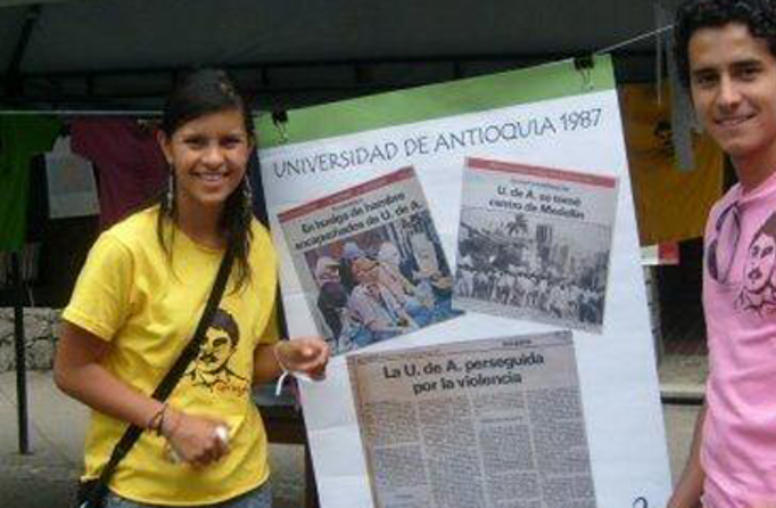
Strengthening the Capacity of Youth to Build Peace in Colombia
Through a grant to Hijos e Hijas por la Memoria y Contra la Impunidad (Sons and Daughters for Memory and Against Impunity), USIP is strengthening a youth organization dedicated to promoting a peaceful resolution to Colombia's conflict, supporting young people’s desire to serve as leaders for peace in Colombia, and helping to develop the peace-making capacities of the younger generation.
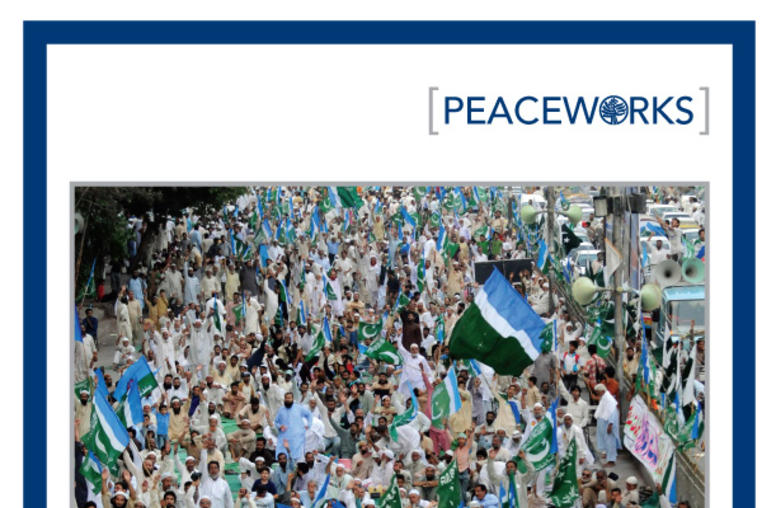
Will the Long March to Democracy in Pakistan Finally Succeed?
To break its pattern of alternating democratic and military rule, Pakistan’s civilian government should assert authority over its military and intelligence agencies, involve civil society in building a robust legislative agenda, and investigate and prosecute corruption. The international community can help by maintaining support for Pakistani institutions and organizations that have strengthened democratic practices.